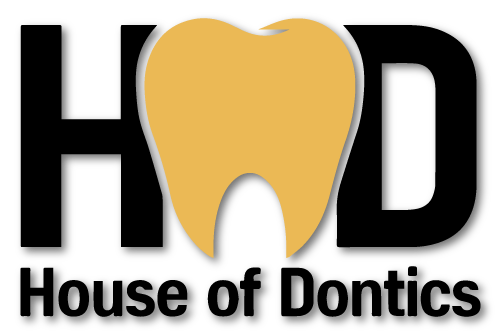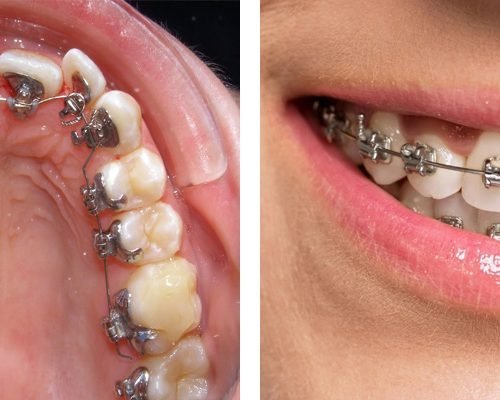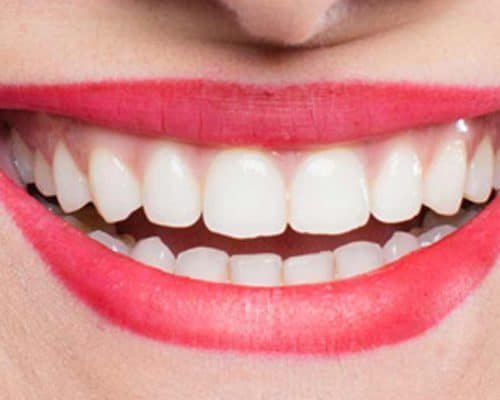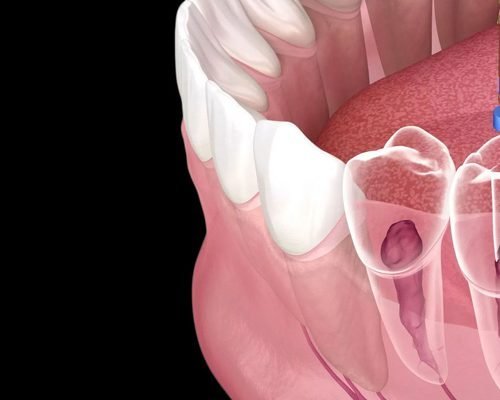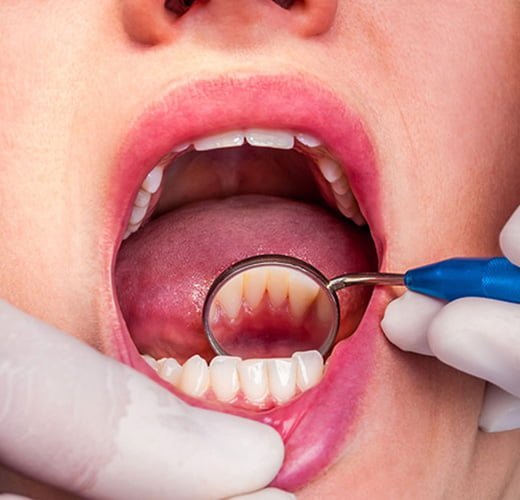
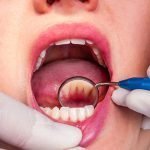
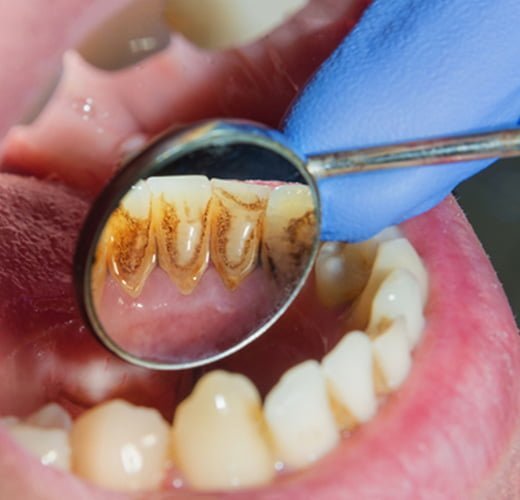
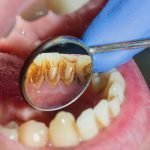


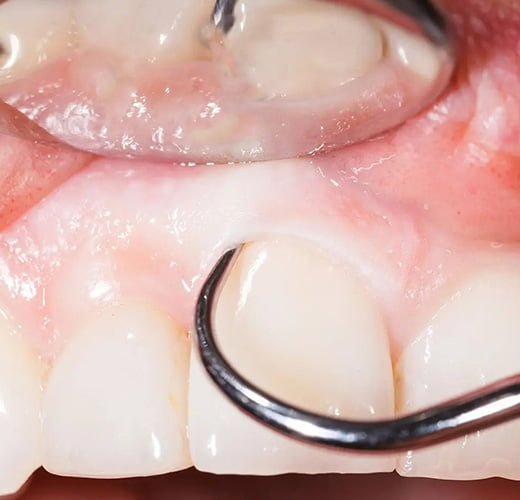
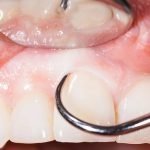
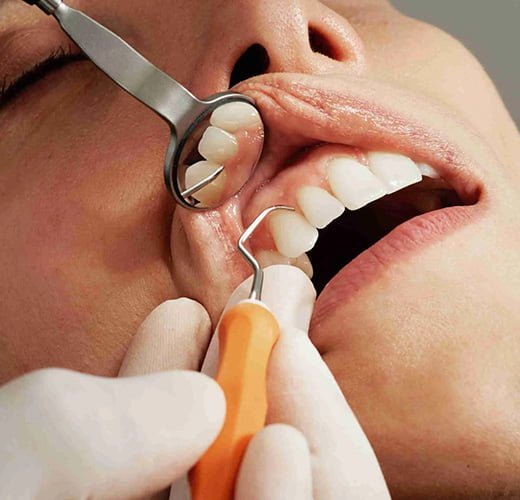
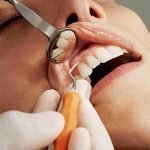
Deep Cleaning
Teeth deep cleaning, also known as scaling and root planing, is a dental procedure that deeper cleaning that goes under your gums to prevent or cure gum disease. It is often recommended for patients with gum disease or periodontitis, a serious gum infection that can lead to tooth loss. This is a different treatment from normal cleaning and you should have deep cleaning twice a year.
Gum disease can cause symptoms such as bleeding gums, bad breath, loose teeth, and swollen gums. When gum disease occurs, it is due to the accumulation of bacteria on the teeth and gums, leading to inflammation and infection. As the condition worsens, bacteria can spread deeper into the gum tissue and damage the bone that supports the tooth, resulting in periodontitis. If you have gum disease, recommend the best deep cleaning treatment at House of Dentists, especially if it has progressed to periodontitis. This process effectively removes tartar buildup below the gum line.
During the deep cleaning, you will receive a local anesthetic to numb the area being treated. The dental professional will then use special tools to remove the plaque and tartar from your teeth and gums. They may also use a laser to remove any bacteria that have accumulated on the roots of your teeth. This procedure may also involve the use of an ultrasonic scaler, which uses high-frequency vibrations to remove the tartar. This process can take longer than regular cleaning and may require two or more appointments to complete, each visit can take 1 to 2 hours.
Regular cleaning only removes plaque and tartar from the surfaces of teeth above the gum, while deep cleaning targets the surfaces at and below the gumline to prevent gum disease and inflammation. House of Dontics is a dental clinic with a team of highly qualified gum specialists. They are trained to identify the early signs of gum disease and provide effective treatment before it becomes severe. Their deep cleaning procedures are done with precision and care to ensure a comfortable and painless experience for their patients. we use world-renowned Ultrasonic Scalers and Hand Scalers, as well as dental lasers for deep cleaning. They aim to provide a painless dental experience and prevent gum diseases with patient-friendly treatment options.
Unveiling Our Treatment's Unique Strengths

Ultrasonic Scalers
These devices use high-frequency vibrations to remove plaque and tartar buildup from teeth. They are often more efficient than hand scalers and can help reduce the time needed for cleaning.

Hand Scalers
These are traditional dental tools used to remove plaque and tartar buildup from teeth. While they are less efficient than ultrasonic scalers, they can be useful in reaching hard-to-reach areas.

Dental Lasers
These devices use a concentrated beam of light to remove plaque and tartar buildup from teeth. They are often used for more advanced cases of gum disease and can help reduce bleeding and inflammation.

Digital X-rays
These images provide a detailed view of the teeth and gums, allowing dental professionals to identify issues that may not be visible during a routine examination.

Intraoral Cameras
These small cameras allow dental professionals to get a detailed view of the teeth and gums, making it easier to identify any issues or areas that may require additional cleaning.

Air Polisher
Sprays a high-pressure stream of air, water, and abrasive powder to remove stubborn stains and plaque from teeth and other surfaces.

Consultation
Our experienced dental team is ready to diagnose and provide personalized treatment plans for all your oral health concerns.

Personalization
Personalization of dental problems involves tailored treatment plans and customized care, ensuring individualized solutions for each patient's oral health needs.
Showcasing Exceptional Outcomes of Our Surgeries
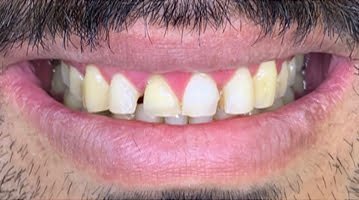
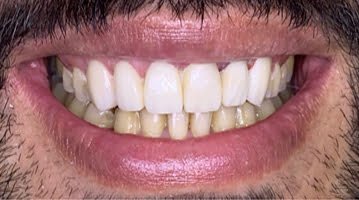
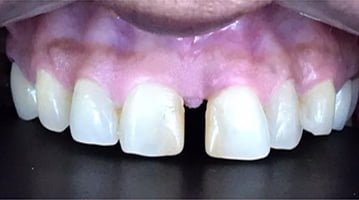
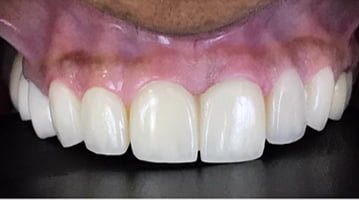
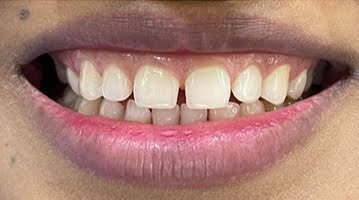
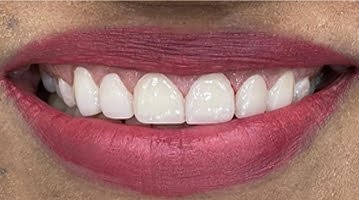
Unleash Your Dazzling Smile Today!
- Inform dentist of any medical conditions or medications you are taking before the cleaning.
- Avoid smoking or using tobacco products for at least 24 hours before the cleaning.
- Avoid alcohol consumption for at least 24 hours before the cleaning.
- Brush your teeth thoroughly before the cleaning appointment.
- Avoid eating or drinking anything for at least 2 hours before the cleaning.
- Wear comfortable clothing that allows for easy access to your mouth.
- Arrive at the appointment on time to ensure a smooth and relaxed experience.
- Discuss any concerns or fears you may have with dentist before the cleaning.
- Bite down gently on the gauze pad that was placed over the surgical site to control bleeding. Replace the gauze pad every 30 to 45 minutes until the bleeding subsides.
- Avoid eating or drinking anything hot until the numbness from the local anesthesia wears off.
- Avoid drinking through a straw or smoking for at least 24 hours as this can dislodge the blood clot and delay healing.
- Avoid hard, crunchy, or chewy foods for the first few days after surgery, and stick to soft foods that don’t require much chewing.
- Take any prescribed medications as directed, including painkillers and antibiotics.
- Apply an ice pack to your cheek for 10-20 minutes at a time to reduce swelling and discomfort.
- Gently rinse your mouth with warm salt water every 2-3 hours, beginning the day after surgery. Mix 1 teaspoon of salt into 8 ounces of warm water and rinse gently, taking care not to spit forcefully.
- Brush your teeth gently and carefully, avoiding the surgical area, for the first few days after surgery. You can resume normal brushing after the first week.
- Call dentist or oral surgeon if you experience excessive bleeding, severe pain, fever, or any other concerns.
Understanding Root Causes of Dental Issues

Gum disease
When plaque and tartar build up along the gum line, it can lead to gum disease. Deep cleaning can help remove this build-up and prevent the disease from progressing.

Periodontitis
This is a more advanced form of gum disease that occurs when the bacteria in plaque infect the gums and surrounding tissues. Deep cleaning can help remove the bacteria and reduce the risk of further damage.

Tartar buildup
Tartar, also known as calculus, is a hardened form of plaque that cannot be removed by brushing or flossing alone. Deep cleaning can help remove tartar buildup and prevent further damage to your teeth and gums.

Tooth decay
If you have a lot of cavities or other signs of tooth decay, dentist may recommend a deep cleaning to remove any buildup of bacteria that may be contributing to the problem.

Poor oral hygiene
If you haven't been taking care of your teeth and gums as well as you should be, dentist may recommend a deep cleaning to remove any buildup of plaque or tartar and help you get back on track with your oral hygiene.

Age
As people age, their gums may recede, making it easier for bacteria to accumulate and cause dental problems.

Smoking and Tobacco Use
Smoking and other tobacco products can cause a buildup of plaque and tartar, which can lead to gum disease and other dental problems.

Medical Conditions
Certain medical conditions, such as diabetes and HIV, can increase the risk of gum disease and other dental problems.
Our Treatment Process
Examination
Anesthesia
Scaling
Root Planning
Second visit for root planing, If there is any roughness or irregularities on the surface of your tooth roots, the dentist may perform root planing. This involves smoothing out the surface of the tooth roots to help prevent plaque buildup and bacterial growth.
Polishing
Fluoride treatment
Frequently Asked Questions
Patient Testimonials



Blogs
Lingual Braces vs. Traditional Braces: Comparing the Differences
Enhance Your Smile and Boost Your Self-Image with a Smile Makeover
Getting Ready for Your First Root Canal Treatment - The Need-to-Know Details
Explore Our Comprehensive Dental Services
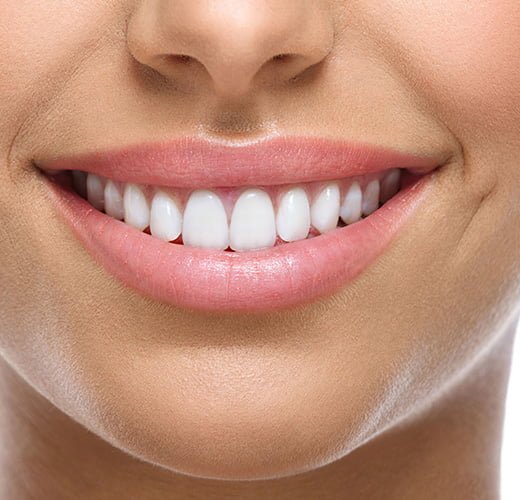
Laser Gummy Smile Correction
One of the first things you observe about someone is their smile. Have you ever realized that when you smile, more gums are visible than your white, shiny teeth? If yes, then you might have a gummy smile. If you have minimal gum tissue showing, you will have an attractive smile.
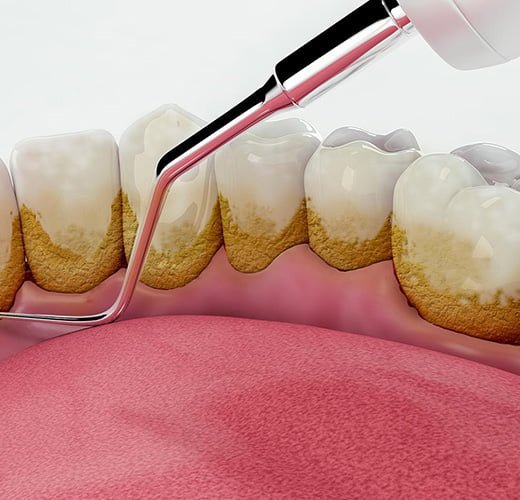
Full Mouth Scaling & Polishing
Full mouth scaling and polishing is a dental procedure that is used to remove plaque, tartar, food debris, extrinsic stains, and other debris from the teeth and gums. This is an im
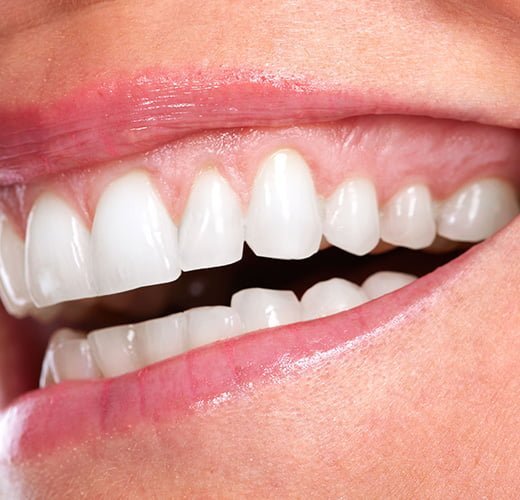
Gums Surgery
Periodontal disease, also known as gum disease, is a severe infection that affects the gum tissues. The root cause of this condition is the accumulation of harmful bacteria on the surface
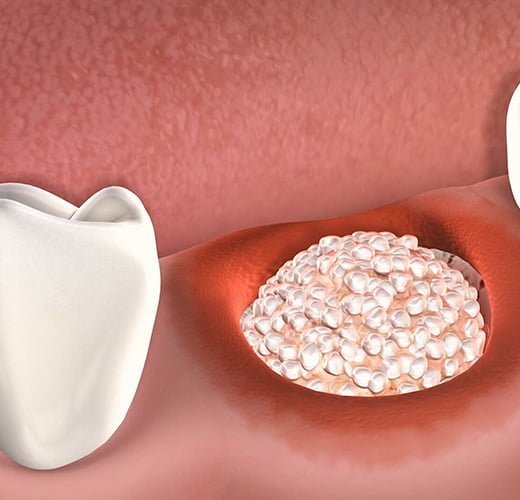
Socket Preservation Therapy
Losing a tooth can be a difficult and stressful experience. Whether it is due to injury, decay, or disease, the loss of a tooth can have negative effects on your oral health, appearance, and
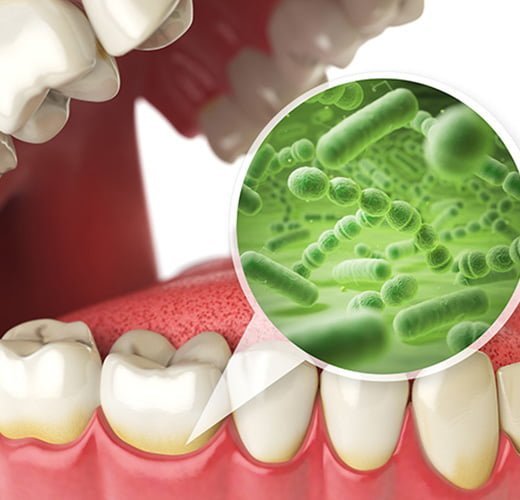
Bad Breath Treatment
Bad breath, also known as halitosis in medical terms, can be socially uncomfortable and potentially serious health issues. It is estimated that up to 25% of people have chronic bad breath. While bad
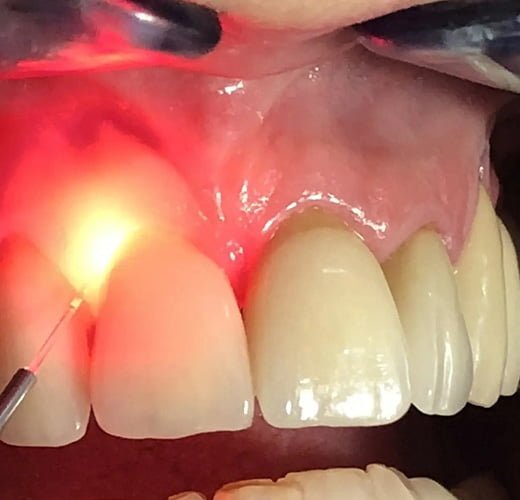
Laser Gum Depigmentation
Excessive pigmentation of the gums resulting in a dark or blackened appearance is caused by the abundance of melanin, the same pigment that determines skin color. Individuals with darker skin
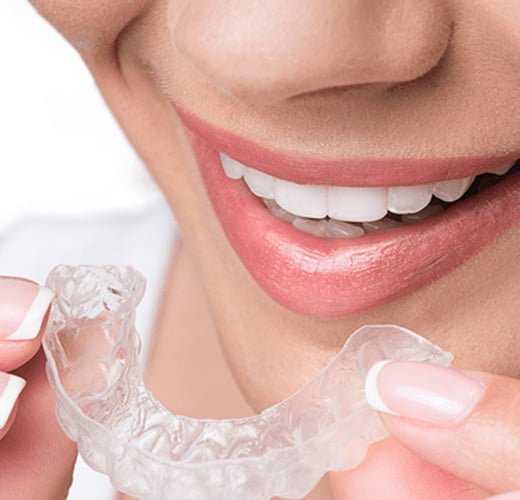
Mobile Teeth Solution with Splinting
Although your teeth may appear clean, sparkling, and in good condition, there may still be underlying issues that you are unaware of. If you experience difficulty chewing or notice your teeth appearing loose
